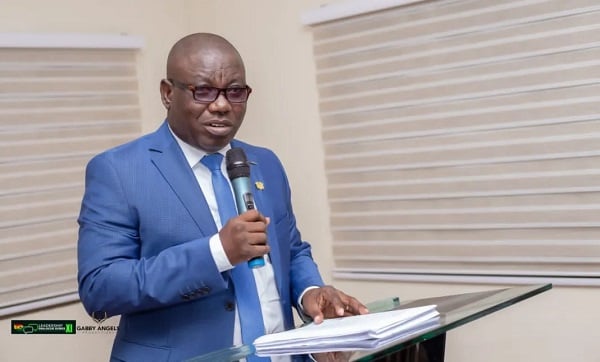Isaac Adongo, the Member of Parliament for Bolgatanga Central and spokesperson for the John Mahama Campaign Team on economic affairs, has made critical remarks regarding the performance of the Bank of Ghana, particularly under the leadership of Governor Dr. Ernest Addison. During a recent interview, he asserted that the Central Bank is not meeting its obligations effectively, contributing to Ghana’s rising inflation and an unstable exchange rate. Adongo’s comments reflect a growing concern about the current economic climate and suggest significant shifts in governance and economic policy under a potential future NDC administration.
Adongo’s central thesis is that the Bank of Ghana has become “not fit for purpose,” unable to address fundamental economic issues. He metaphorically compared the Central Bank to a herbalist, stating that when national economic ailments like inflation and exchange rate instability arise, the Bank should function as a source of healing and stability. He believes that the inefficacy of the Bank in managing these economic challenges indicates a deeper systemic problem, leading him to advocate for a comprehensive overhaul should the NDC regain power. His call for change serves as a rallying point for supporters, urging voters to consider the competence of the current administration critically.
The use of metaphors demonstrates Adongo’s approach to communicate complex economic issues in more relatable terms. By expressing that a sick tree cannot yield healthy herbs, he underscores the idea that if the institution meant to stabilize the economy is dysfunctional, it will not possess the capability to remedy broader economic problems. His statements serve not only to critique the current leadership of the Bank but also to mobilize public sentiment in favor of a proactive and reformist approach under John Mahama’s leadership.
Moreover, Adongo has pointed out the dire implications of the Bank’s performance, labeling it as “monetary insolvent.” This term indicates that the Bank is not only failing to manage national monetary policy effectively but may also be exacerbating the economic challenges facing the country. He argues that the Bank’s inability to manage inflation and stabilize the currency indicates a state of crisis that requires urgent and decisive action from political leaders. This assertion emphasizes the need for economic reform, led by a government that prioritizes fiscal responsibility and strategic monetary policies.
In light of these claims, Adongo positions the NDC as a party capable of restoring economic stability and effectiveness to the Bank of Ghana. He presents the upcoming electoral choice as pivotal to the nation’s economic recovery, framing it as a critical juncture for Ghanaians to consider their future. By insisting that the remedy lies in a reformative government, Adongo is tapping into the public’s existing dissatisfaction with current economic conditions, hoping to galvanize support for Mahama’s potential presidency.
In conclusion, Adongo’s statements reflect a broader frustration with current economic governance and a strong desire for reform. He positions himself and the NDC as champions of change, ready to confront the challenges posed by the current leadership at the Bank of Ghana. Through his critique and vision for the future, Adongo seeks to create a narrative that resonates with Ghanaians who are yearning for economic stability and effective management of the National Bank. His call for an overhaul of the Central Bank encapsulates the urgency for change, framing the upcoming elections as crucial for the direction of Ghana’s economic health.


